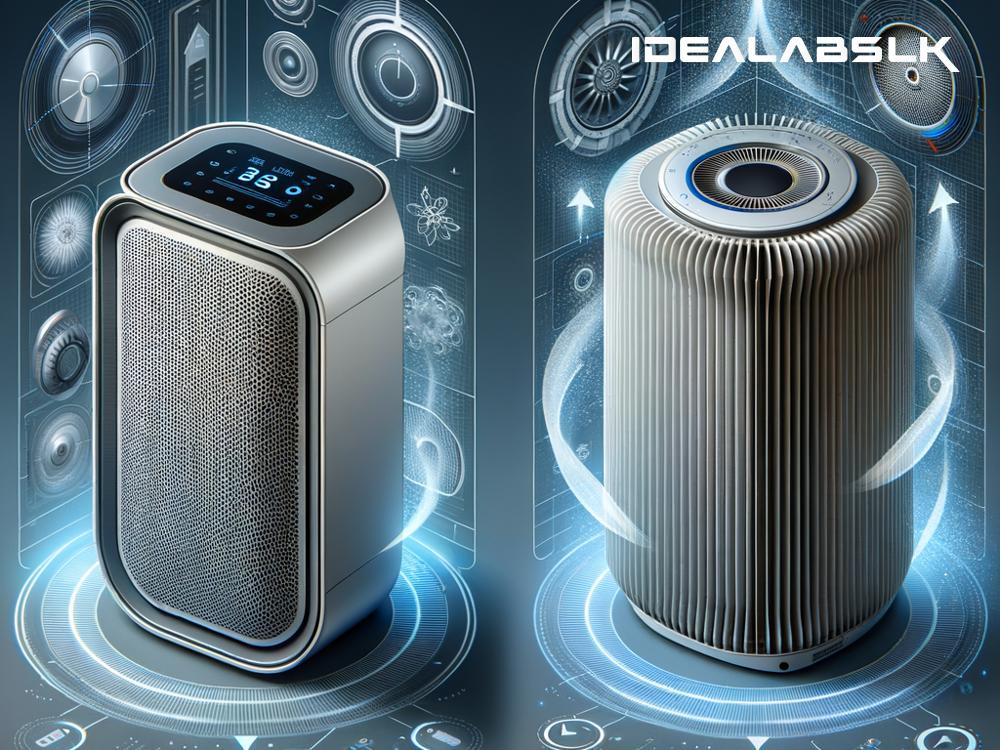In today's world, where air quality is a growing concern, many of us are turning to air purifiers to ensure the air we breathe at home is clean and safe. But when you dive into the world of air purifiers, it quickly becomes overwhelming. Among the vast options, two standout brands often come up - Dyson and Philips. Specifically, their models: Dyson Purifier Hot+Cool Formaldehyde and Philips 3000i, have been making waves. So, how do these two heavyweights stack up against each other? Let's break it down in simple English.
What They Are
First, let's understand what we're comparing. The Dyson Purifier Hot+Cool Formaldehyde isn't just an air purifier; it's also a heater and a cooling fan, hence the "Hot+Cool" in its name. As suggested, it also specifically targets formaldehyde, a common harmful chemical in homes from furniture and building materials. On the other side, we have the Philips 3000i, a smart air purifier designed to automatically sense and remove a wide range of pollutants, not just formaldehyde, from your home environment.
Technology and Features
Dyson's model boasts a sealed HEPA 13 filter that captures 99.95% of particles as small as 0.1 microns. Think of it like a super-tight net that catches tiny, invisible pollutants floating around. Plus, it has an activated carbon filter to snatch up gases and odors, and a special catalytic filter just for formaldehyde. The Dyson also has smart features such as app connectivity, voice control, and real-time air quality reporting. Plus, it can heat or cool the room, which is pretty neat.
The Philips 3000i, while not doubling as a heater or fan, packs a punch with its own high-efficiency HEPA filter, catching up to 99.97% of particles as tiny as 0.003 microns - that's even smaller than what Dyson catches! It also has an activated carbon filter for gas and odor elimination. With AeraSense technology, the 3000i continuously monitors the air and automatically adjusts its speed when it detects a change in air quality. Plus, it's Wi-Fi enabled, allowing for remote control through an app, and provides air quality feedback.
Performance and Use
Both units excel in purifying and maintaining the air quality in medium to large rooms but go about it in slightly different ways. The Dyson's ability to also act as a heating and cooling device might give it an edge in versatility, but it also has a higher price tag because of those additional features. If you're primarily looking for an air purifier, this might be more than you need.
On the other hand, the Philips 3000i focuses solely on purifying the air and does that job exceptionally well. Its slightly superior filtration technology and focus on providing comprehensive data about your air quality make it a strong contender for those primarily concerned with air purity.
Price and Value
When it comes to price, there's no beating around the bush: Dyson's Purifier Hot+Cool Formaldehyde is a significant investment. Its multi-functionality as a heater, cooler, and purifier, along with its formaldehyde-fighting capabilities, put it at a higher price point. If you value those extra features and have the budget, it could be worth the splurge.
The Philips 3000i, while not cheap, is generally more affordable than the Dyson and focuses on doing one thing exceptionally well: purifying your air. If your main goal is to ensure clean air in your home without the need for heating or cooling functions, the 3000i offers great value for its price.
Conclusion
Choosing between the Dyson Purifier Hot+Cool Formaldehyde and the Philips 3000i boils down to what you need and value in your home. If you're looking for a multi-functional device that can purify, heat, and cool your air while specifically targeting formaldehyde, and you don't mind paying a premium, the Dyson could be your pick.
However, if your primary concern is air purification and you prefer a device that provides detailed air quality feedback and is more budget-friendly, the Philips 3000i might be the better choice for you. Both devices offer state-of-the-art technology and impressive features, so you really can't go wrong with either. It's all about finding the right fit for your home and health needs.

